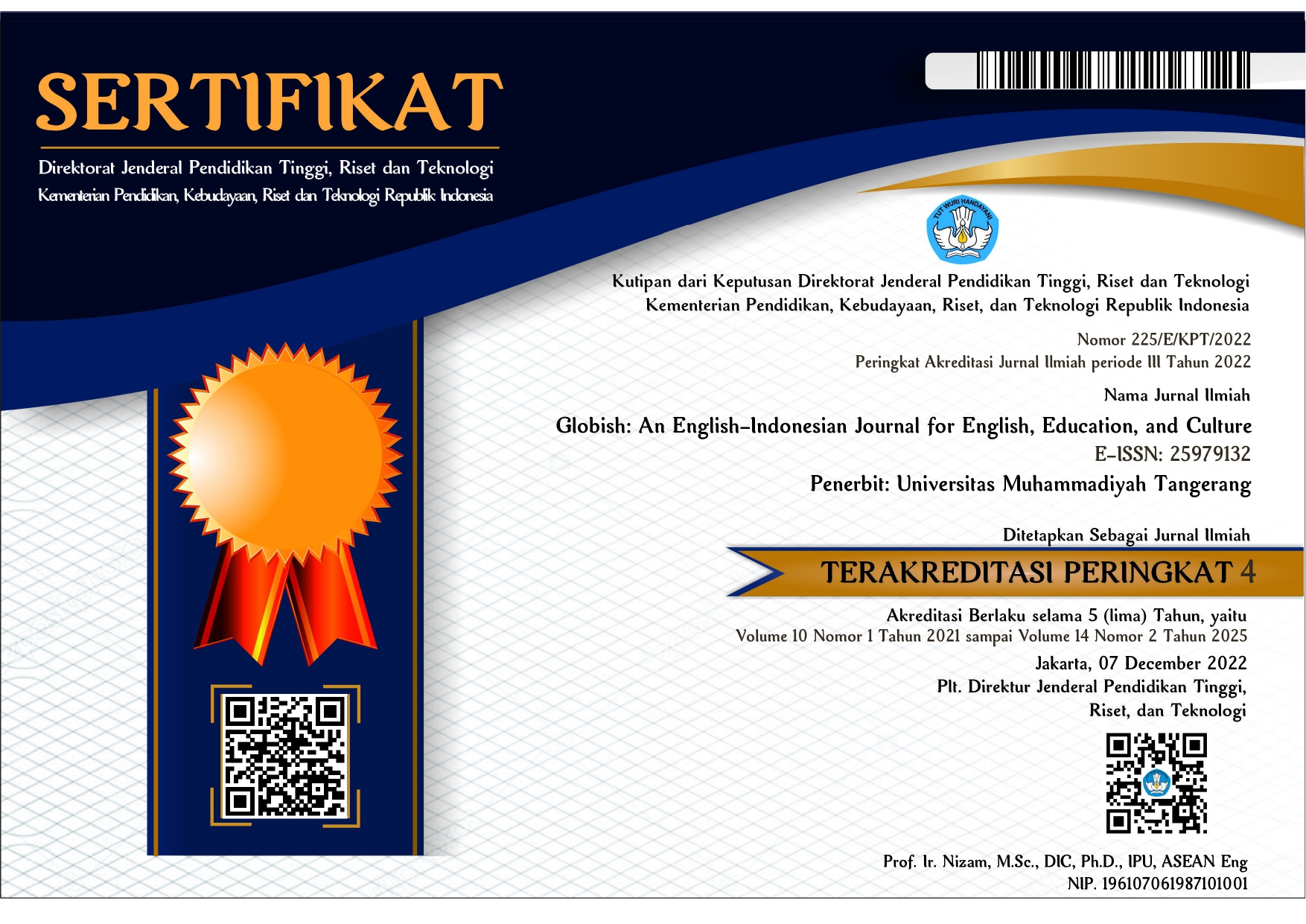THE IMPACT OF MOBILE GADGET IN EFL LEARNING: PERCEPTIONS OF EFL UNDERGRADUATES
Abstract
Abstract
Most of young people are enthusiasticin having the most recent mobile gadgets just to boast among their peers. They likely utilize them to make phone calls, take pictures, listen to songs, watch videos, or surf the internet access for learning or just entertainment. In a technologically advanced country like Indonesia, the third and fourth generation (3G, 4G) mobile devices are available at affordable prices, and people of all streams find it necessary to own a mobile gadget for connecting and communicating. Moreover, it has become a common trend among undergraduates to carry a mobile gadget to the classroom as well.In this paper, the researcher emphasize the potential of mobile gadgets as a learning tool for students and have incorporated them into the learning environment.
The present study examines the application of mobile gadgetin EFL learning and investigates the perceptions of EFL students about mobile gadget in learning activity. A field study was conducted on thirty undergraduatestudents majoring in accounting study Serang Raya University. The methodology of data collection included a self-report for students and teachers’ and students’ questionnaire. Findings of the research are significant for EFL teachers and researchers for introducing innovative methods and helpful materials for the English classroom.
Keywords: Mobile gadget, students’ perception, teachers’ perception..
Full Text:
PDFReferences
Aamri, Al., Suleiman, K. (2011). The Use of Mobile Phones in Learning English Language by Sultan Qaboos University Students: Practices, Attitudes and challenges. Journal on Scientific & Industrial ResearchVol. 2, No. 3, 143-152.
Alhafeez, A. (2017). The Effect of Using "Whats App Messenger" in Learning English Language among University Students. International Journal of Humanities and Applied Social ScienceVol.2, No.2, 15-22.
Alsulami, S. (2016). The Effects of Technology on Learning English as a Foreign Language AmongFemale EFL Students at Effatt College: An Exploratory Study. Journal of Studies in Literature and Language Vol. 12, No. 4, 2016,ISSN 1923-1555 pp. 1-16.
Dang, H, T. (2013). Towards the Use of Mobile Phones for Learning English as a Foreign Language: Hesitation or Welcome?. Journal of Applied LingusiticVol. 13:10, 461-472
El Hariry, A. N. (2015). Mobile Phones as Useful Language Learning Tools. European Scientific Journal June 2015 edition vol.11, No.16 ISSN: 1857 – 7881 (Print) e - ISSN 1857- 7431, 298-317.
Okoth, A, P. (2014). Influence of Mobile Phone’s Technology on Learners’ Grammar: an Evaluation of Public Day Secondary Schools in Nakuru County, KENYA. Unpublished Master thesis, School of Education of Kenyatta University, Kenya.
Shalbag, A, R. (2014). Close Analysis: an Activity for Using Mobile Phones in Teaching Ungraded Writing Tasks for University Students. Journal of the Future of Education. Retrieved December 27, 2017 from https://conference.pixel-online.net/FOE/files/foe/ed0004/FP/0466-SOE453-FP-FOE4.pdf.
Yu, S, et.all. (2013).The Evaluation of Use the Mobile Phone Learning English in Taiwan. International Journal of Information and Education Technology, Vol. 3, No. 2, 189-191.
DOI: http://dx.doi.org/10.31000/globish.v6i2.664
Article Metrics
Abstract - 3528 PDF - 833Refbacks
- There are currently no refbacks.
Globish
Program Studi Pendidikan Bahasa Inggris
Fakultas Keguruan dan Ilmu Pendidikan
Universitas Muhammadiyah Tangerang
Jl. Perintis Kemerdekaan I/33, Cikokol
Kota Tangerang, Indonesia
e-mail: globish_journal@umt.ac.id
Globish (p-ISSN: 2301-9913 | e-ISSN: 2301-9913) is licensed under a Creative Commons Attribution-ShareAlike 4.0 International License.









